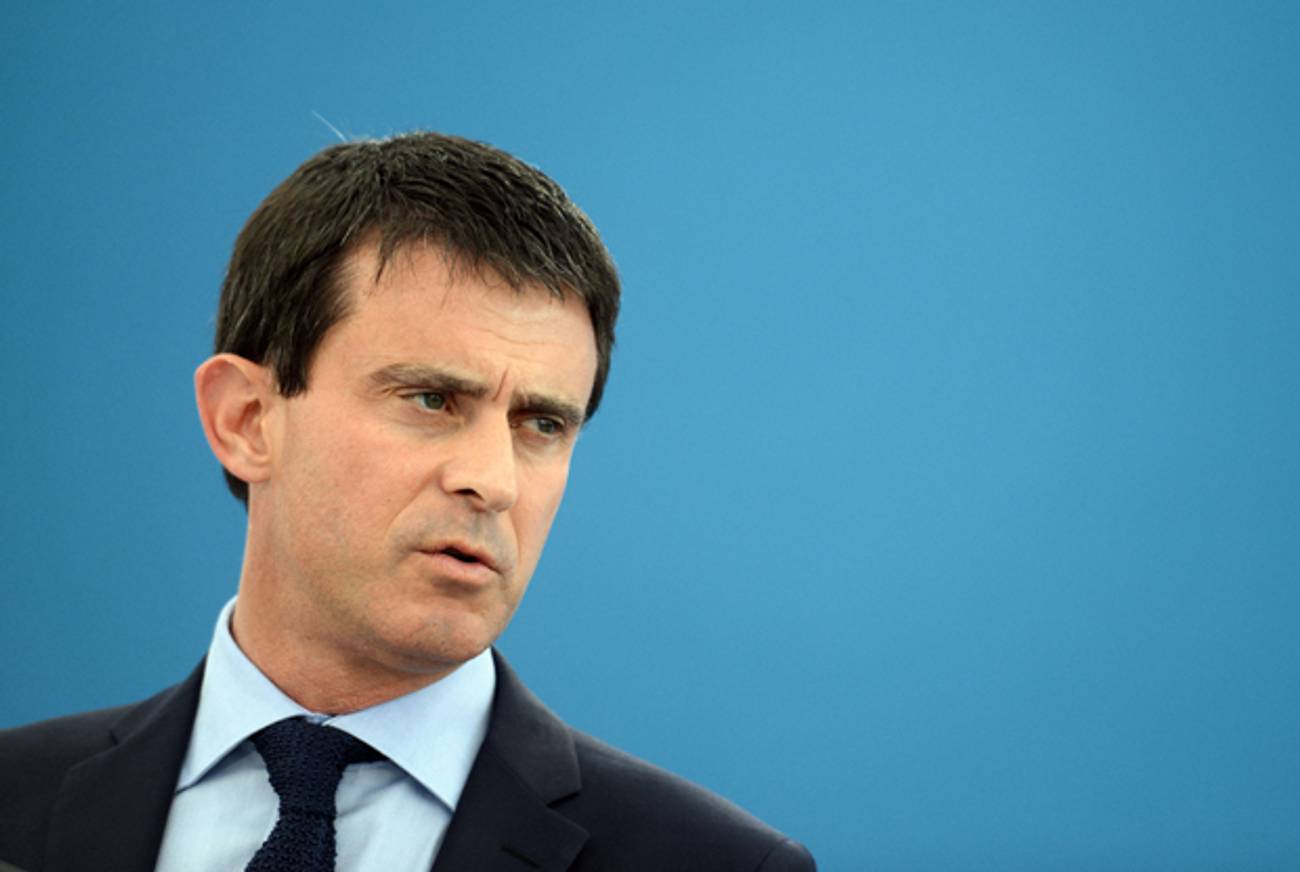French Prime Minister Denounces Anti-Zionism as Anti-Semitism
Manuel Valls shows political courage, becomes a hero to Jews worldwide




Against the backdrop of large anti-Semitic riots in Paris, and the murder of four people at the Jewish Museum in Brussels by a French Muslim killer, Mehdi Nemmouche, French Prime Minister Manuel Valls made a resoundingly firm connection between anti-Zionism and anti-Semitism that other world leaders—and many Jews—are afraid to make. As is his style, he went straight to the point: “Anti-semitism, this old European disease,” he said in a speech, has taken “a new form. It spreads on the Internet, in our popular neighborhoods, with a youth that has lost its points of reference, has no conscience of history, and who hides itself behind a fake anti-Zionism.”
The occasion was the 72th anniversary of the Vel’ d’Hiv Roundup—the arrest of 13.000 Jews in Paris, by the French police under German authorities during World War II on the 16th and 17th of July, 1942. Valls’ strong, clear words are a breakthrough that separates him from the general complacency on the subject among most European politicians—and separates France from its growing reputation as a beacon of hate.
The Prime Minister justified his decision to forbid last Saturday’s “anti-israeli” demonstration by stating that the recent acts of violence against Jews “justify the choice to forbid,” and not the other way around, as so many critics had claimed. And without naming Dieudonné, the minister attacked the rancid French performer when he pleaded that “the historical reality of the Shoah should not be denied, or diminished.(…) To laugh at the Shoah is to insult the dead.”
Before those words, Valls reminded his countrymen of the responsibility of the French state, under Pétain’s government, for the fate of France’s Jews during the fatal years of the Occupation. “The honor of a Nation is to recognize what once was his disgrace.” he said hinting at France’s long-time denial of its responsibility during the Holocaust. “The disgrace of France is to have been a accomplice of the occupier when it sent to a sure death women, men and children, because they were Jews.” He also praised the (right wing) ex-president Jacques Chirac for being the first to officially recognize France’s responsibility in his address at the 1995 commemoration. That day, said Valls, Chirac “had the courage to free us from ourselves.”
It was a strong speech and, given the context, it took real courage for Valls to stand up and say words that other European politicians have been too cowardly to speak. Friends of France who have been nauseated by the growing wave of violence against Jews, and appalled by the even more common mainstreaming of anti-Zionism as the socially and intellectually acceptable mask for the crude anti-Semitism of the streets, can take heart from Valls’ words.
Whether Valls’ speech was politically wise or skillful is a different question. Alluding to Dieudonné during such a solemn anniversary may be seen as questionable. And drawing an explicit link between the political anti-Semitism of the Vichy regime 70 years ago and the popular anti-Jewish hatred of Arab youth in France today, deserves at best an explanation that Valls didn’t give. Yes, anti-Semitism is always the sign of a deep crisis affecting a country. But the fact of the matter is that the government has been at pains so far to explain away the crisis, and to avoid dealing with it. And if Chirac was indeed the first president to officially recognize France’s responsibility toward the Jews, he’s also the most popular of the French presidents in the Arab world because of his crude courting of Arab tyrants like Saddam Hussein. It is also fact that the first anti-Semitic incidents in today’s France started during his presidency.
It didn’t take long for the National Front to take advantage of those contradictions and perversely denounce Valls’s speech for “hatred of France.” “What does it mean to say that France was an accomplice of the Germans?” said Marine Le Pen’s chief advisor, Florian Fillipot. “France was in London,” he added referring to De Gaulle, “and there was an occupied country, not an accomplice. Of course there was a collaboration of sorts, but there were also heroic acts of resistance, and this is something nobody says anymore.”
Coming from a party that loathed De Gaulle and praised Pétain for decades, and pretends to be today “the best shield for the french Jews against Muslim hatred,” as Marine Le Pen recently said, Fillipot’s reply sounds like a joke—but it is not. Rather, it is a sign of the confusion of the times in France. Whether Manuel Valls will be able to overcome that confusion and stand by his brave words while remaining a political force in France remains to be seen.
Previous: Why France Banned Anti-Israel Demonstrations
Related: How a City in France Became a Mecca for Islamists
‘Yesterday, a Part of My Love for France Left Me’
Marc Weitzmann is the author of 12 books, including, most recently, Hate: The Rising Tide of Anti-Semitism in France (and What It Means for Us). He is a regular contributor to Le Monde and Le Point and hosts Signes des Temps, a weekly public radio show on France Culture.